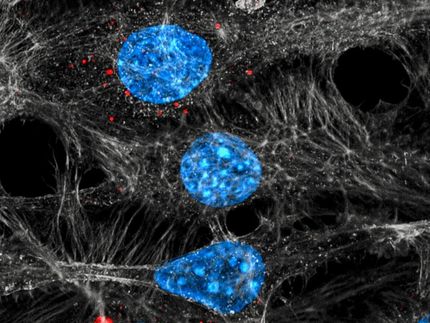Novartis drug Afinitor met primary endpoint of Phase III study in women with advanced breast cancer
Trial stopped early after positive interim results showed everolimus plus exemestane extended time without tumor growth
Novartis announced that an interim analysis of a pivotal Phase III study showed Afinitor® (everolimus) tablets in combination with exemestane significantly extended progression-free survival (PFS), or time without tumor growth, when compared to placebo plus exemestane in women with advanced breast cancer. The trial was stopped early after interim results showed the primary endpoint of PFS was met. The study included postmenopausal women with ER+HER2- metastatic breast cancer whose disease has progressed, despite initial endocrine therapy.
"Despite clinical progress in advanced breast cancer, most women are either initially resistant or develop resistance to endocrine therapy over time. As a result, there is a significant need for new treatment options," said Hervé Hoppenot, President, Novartis Oncology. "Based on these study results, this combination has the potential to extend the time until chemotherapy is needed for these patients."
The study, BOLERO-2 (Breast cancer trials of OraL EveROlimus-2), is a Phase III, randomized, double-blind, placebo-controlled study of everolimus in combination with exemestane versus placebo plus exemestane in postmenopausal women with estrogen receptor-positive locally-advanced or metastatic breast cancer, whose disease has progressed, despite treatment with the nonsteroidal aromatase inhibitors letrozole or anastrozole.
Results will be presented at an upcoming medical conference and worldwide regulatory submissions are being planned by the end of 2011.
Everolimus targets mTOR in cancer cells, a protein that acts as an important regulator of tumor cell division, blood vessel growth and cell metabolism. Everolimus is also being investigated for the treatment of patients with HER2+ advanced breast cancer.
Study design
BOLERO-2 involved more than 700 patients at over 195 sites worldwide. Patients in the trial were randomized (2:1) to receive continuous therapy with everolimus 10 mg/day orally or placebo plus oral exemestane 25 mg/day. Patients who had received more than one prior chemotherapy regimen for advanced breast cancer were excluded from enrollment. The primary endpoint was progression free survival. Secondary endpoints included overall survival, overall response rate, incidence of adverse events, patient reported outcomes and clinical benefit rate.
Most read news
Other news from the department research and development

Get the life science industry in your inbox
By submitting this form you agree that LUMITOS AG will send you the newsletter(s) selected above by email. Your data will not be passed on to third parties. Your data will be stored and processed in accordance with our data protection regulations. LUMITOS may contact you by email for the purpose of advertising or market and opinion surveys. You can revoke your consent at any time without giving reasons to LUMITOS AG, Ernst-Augustin-Str. 2, 12489 Berlin, Germany or by e-mail at revoke@lumitos.com with effect for the future. In addition, each email contains a link to unsubscribe from the corresponding newsletter.





















































